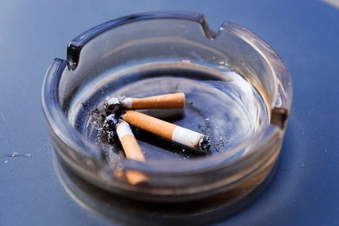Foundational Behaviors That Go Hand-In-Hand With Cholesterol Management

Keeping Cholesterol in Check
It’s especially important to manage cholesterol after you’ve had a coronary event. Your doctor may even add another medication to help keep your cholesterol in check. Lifestyle changes can go hand-in-hand with medicine. From diet to exercise, sleep to stress management, you can make easy changes to keep your cholesterol levels healthy.

Limit Saturated Fats
One of the best ways to lower your cholesterol is to cut back on foods that are high in saturated, or solid, fats. Solid fat comes from animal products and tropical oils like coconut, palm, and palm kernel oils. Skip foods that are high in trans fats, sometimes listed as partially hydrogenated vegetable oil. For example, trans fats are found in prepackaged foods like cookies and crackers.

Choose Heart-Healthy Foods
Eat lots of high-fiber fruits, vegetables, and whole grains. Choose unsaturated or “healthy” fats found in foods from plants like nuts, avocados, and olive oil. If you eat these foods instead of saturated fats, they can help lower LDL, or “bad,” cholesterol and boost your “good,” or HDL, cholesterol. Avoid red meat and full-fat dairy, and try picking chicken, fish, and low-fat dairy alternatives.

Get Moving
If life keeps you sitting still too much or not moving enough, your HDL, or “good,” cholesterol can drop. The American Heart Association suggests that you get at least 2½ hours of exercise each week. That doesn’t have to be all at once or at the gym. You can walk quickly, take a bike ride, or even work in the yard—it all adds up. Staying active also helps you ease stress, lower your blood pressure, and manage weight.

Stop Smoking for Good
There are many good reasons to quit smoking, including lowering your cholesterol. Smoking can also make your HDL, or “good,” cholesterol worse. Your chance of getting heart disease is higher when you smoke and have high cholesterol, but you’ll see benefits right away if you quit. After just 20 minutes, your blood pressure can improve, and after a year, you cut your risk for heart disease in half, compared to other smokers.

Skip the Alcohol
Drinking alcohol can raise your cholesterol levels and triglycerides, another type of fat that helps determine your risk for heart disease. Drinking too much can also add to your stress and raise your risk for stroke, high blood pressure, and heart failure. The good news is that quitting can improve your health. So if you don’t drink, don’t start. Since alcohol can affect your health, talk with your doctor about how it can impact your cholesterol levels.

Get to a Recommended Weight
Every 10 pounds of extra weight can raise your LDL, or “bad,” cholesterol as much as 10 mg. The positive news is that reaching your recommended weight helps raise your “good” HDL cholesterol. And making small changes like drinking water instead of sugary soda, parking farther away to stay active, or getting in a few more steps helps you get closer to your weight goal.

Lower Your Stress
Everybody feels stressed once in a while. Maybe it’s from a new job or a big project at home. But when you’re under constant pressure, your stress hormones stay high. These stress hormones can raise your cholesterol and your chance of having high blood pressure. Try to ease your stress in healthy ways like eating well, practicing yoga, meditating, or listening to calming music.

Get Enough Sleep
Heart disease and sleep disorders can go together. Try to get 7 to 9 hours of sleep each night to keep your body and brain in good health. Not getting enough shut-eye can raise your LDL and total cholesterol levels, raising your risk for heart disease, high blood pressure, and stroke. Since sleeping helps your body repair problems with your heart and blood vessels, talk with your doctor about getting plenty of sleep.

Work With Your Doctor
Build a care team that includes your doctor to keep cholesterol under control. If your doctor suggests it, get a cholesterol test, also called a lipid panel, at least once a year. Keep a record of your results, and tell your doctor about any changes you’ve made to your diet or other habits like exercise. Follow all treatment plans, and write down any questions or concerns to ask your doctor about at your next visit.

Get Support From Family and Friends
You don’t have to manage cholesterol by yourself when you ask for help. Eating a heart-healthy diet makes sense for everyone. So does staying active and getting sleep at night. Get your family and friends on board with healthy cooking, being active, and finding fun ways to manage stress. It’s more fun and easier to do when someone is cheering you along. Having a support system can lower stress and help you manage your cholesterol.
Show Sources
IMAGES PROVIDED BY:
- iStock/Getty Images
- Moment/Getty Images
- Westend61/Getty Images
- Thomas Barwick/Getty Images
- Moment/Getty Images
- Moment/Getty Images
- Moment/Getty Images
- DigitalVision/Getty Images
- E+/Getty Images
- iStock/Getty Images
- DigitalVision/Getty Images
SOURCES:
Mayo Clinic: “Acute Coronary Syndrome,” “Top 5 Lifestyle Changes to Improve Your Cholesterol.”
Circulation: "When to start cholesterol-lowering therapy in patients with coronary heart disease: a statement for healthcare professionals from the American Heart Association Task Force on Risk Reduction.”
CDC: “Preventing High Cholesterol,” “About Sleep and Your Heart Health.”
Harvard Health Publishing: “How to Lower Your Cholesterol Without Drugs.”
Heart and Stroke Foundation: “Managing Cholesterol.”
National Heart, Lung, and Blood Institute: “Blood Cholesterol: Treatment,” “Heart-Healthy Living: Manage Stress,” “Get Enough Good-Quality Sleep,” “Therapeutic Lifestyle Changes (TLC) to Lower Cholesterol.”
Cleveland Clinic: “How to Naturally Lower Your Cholesterol.”
American Heart Association: “Prevention and Treatment of High Cholesterol (Hyperlipidemia).”
University of Rochester Medical Center: “Stress Can Increase Your Risk for Heart Disease.”
American Medical Association: “What Doctors Wish Patients Knew About High Cholesterol.”
Obesity Action Coalition: “Obesity and Lipid Abnormalities Fact Sheet.”